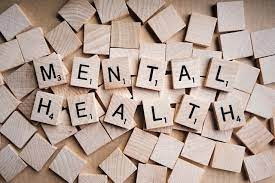
One in every eight people in the world live with a mental disorder.
According to World Health Organisation (WHO), 970 million people were living with a mental disorder in 2019.
Mental disorders involve significant disturbances in thinking, emotional regulation or behaviour.
There are many different types of mental disorders. Effective prevention and treatment options exist. Most people do not have access to effective care
What is mental disorder?
This is a condition characterised by a clinically significant disturbance in an individual’s recognition, emotional regulation or behaviour. It is usually associated with distress or impairment in important areas of function
Types of mental disorders
There are more than 150 types of mental disorders in the world and below are some of the common classes and types.
- Illegal smuggling of US-made weapons from Afghanistan to Pakistan and its trade: a thriving business in Pakistan
- Dynamite comes in small packages in Pastor Chirinda
- Dynamite comes in small packages in Pastor Chirinda
- Toxic smoke chokes Karoi residents
Keep Reading
Anxiety disorder: In 2019, 301 million were living with an anxiety including 58 million children and adolescents. Anxiety disorders are characterised by excessive fear and worry and related behavioural disturbances. There are several different kinds of anxiety disorders such as generalised anxiety disorder (characterised by excessive worry), panic disorder (characterised by panic attacks), social anxiety disorder (characterised by excessive fear and worry in social situations), separation anxiety disorder (characterised by excessive fear from those one has deep emotional bond with)
Depression: In 2019, 280 million people were living with depression according to WHO, including 23 million children and adolescents. During a depressive episode, one can experience a depressive mood (feeling sad, irritable, empty), can have loss of pleasure or interest in activities, can lose appetite, can lose sexual appetite, may fail to sleep, can have suicide thoughts, can have feelings of excessive guilt or low self-worth.
People with depression are at increased risk of suicide hence the need to have effective psychotherapy to reduce the effects of depression. Many of the people can end up sticking to drugs and further worsen the problem after going into financial misery and poor physical health
Psychotic disorders: These are severe mental disorders that can cause abnormal thinking and perceptions. People with psychoses lose touch with reality. Two of the main symptoms are delusions and hallucinations. Delusions are false beliefs such as thinking that someone is plotting against you or that your television is sending you secret messages. Hallucinations are false perceptions such as hearing, seeing, feeling something that is not even around.
Causes of psychosis include drugs of abuse for example marijuana, alcohol, cocaine, crystal meth.
Schizophrenia is one common problem affecting about 24 million people in the world. Symptoms include persistent delusions, highly disorganised behavior, extreme agitation. Patients experience persistent difficulties with their cognitive functioning.
Other causes of psychosis include familial predisposition, brain tumours, brain infections, stroke
What are the risk factors for mental illness?
Mental illness can begin at any age, from childhood through later adult years, but most cases begin earlier in life. Bear in mind that you can have more than one mental disorder at the same time.
Certain factors increase your risk of developing mental illness and these include:
-History of mental illness in a blood relative such as parent or sibling.
-Stressful situations such as financial problems, bereavement or divorce.
-Ongoing medical diseases which may be chronic like HIV, diabetes or cancer.
-Brain damage as a result of serious injury (traumatic brain injury)
-Previous mental illness
-Traumatic experiences such as military combat or assault
Use of illicit drugs and lately in Zimbabwe, crystal meth, has taken centre stage, mbanje (cannabis),alcohol, sodium polyacrylate from diapers. Our youths are perishing by the day complications
Mental illness is the leading cause of disability. Untreated mental illness can cause severe emotional, behavioural and physical health problems. The following may be complications linked to mental illness:
-Unhappiness and decreased enjoyment of life
-Family conflicts
-Relationship difficulties
-Social isolation
-Drug abuse like tobacco, alcohol ,mbanje
-Missed work or school or other problems related to work or school
-Legal and financial problems
-Poverty and homelessness
-Self-harm and harm to others including suicide or homicide
-Weakened immune system
Prevention
There is no sure way to prevent mental illness, however, if you have a mental illness, take steps to control stress and increase your resilience. If you suspect someone is getting mental illness, do everything possible to assist that person by identifying common symptoms/signs, taking the person for further evaluation and monitoring the uptake of drugs.
In essence, one has to follow the following steps if you are not going to be caught unaware of mental illness:
-Pay attention to warning signs—Work closely with your doctor or therapist to learn what might trigger your symptoms. Inform your doctor of any emerging symptoms and how you feel.Get routine medical checks — do not skip your check ups if you are not feeling well. You may have a new health problem that needs treatment or it may be side effects of the medication.
-Get help as you need it — mental health can be harder to treat if you wait until symptoms get bad.
-Get counselling — open up about your problems to those you trust, for example, to your pastors, clinicians, family elders who may assist in ironing out the problems
-Take good care of self—sufficient sleep, healthy eating, regular physical activity are important
-Avoid drug abuse—Drug abuse has lately been rampant in the country with alcohol, mbanje (cannabis), cocaine, crystal meth being dorminant in the country
Diagnosis
Diagnosing mental disorder is important and this can involve the following steps:
Physical examination — doctor can rule out physical problems which can cause your symptoms for example making sure there is no meningitis, no brain tumors
Laboratory tests — can check drug levels in the blood like alcohol level, diazepines, cocaine etc
Mental examination — cognitive function can be tested
Radiological examination — Investigations like CT scans can be done to rule out conditions like brain tumours, brain hemorrhages etc
Treatments
Mental health management team may be very long and can include many of the following:
Family doctor
Nurse practitioner
Psychologist
Psychiatrist — a specialist doctor for diagnosing and treating mental illnesses
Pharmacist
Social worker










